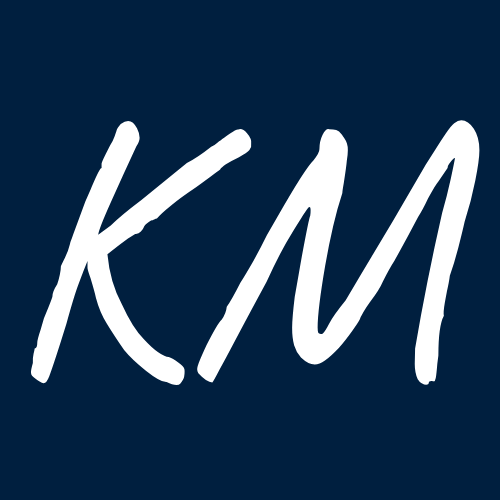The Chem Ledger #13: December 25, 2024
Welcome to The Chem Ledger, your go-to source for the latest updates in the chemical and allied industries. In this week's edition, I cover significant events across key sectors, including materials, energy, pharma, petrochemicals, and packaging. From advancements in holographic displays and battery manufacturing to regulatory milestones in pharma and corporate deals, here's a roundup of the developments that shaped the industry over the past week.
Materials

1/ Eastman, Covestro, and Ceres Holographics have formed a partnership aimed at advancing holographic transparent display technology for automotive applications. This collaboration aims to address the increasing demand from Original Equipment Manufacturers (OEMs) for head-up display (HUD) systems that enhance safety and user experience. The partnership combines Eastman's advanced interlayer laminates, Ceres' HoloFlekt technology for high-quality holographic imaging, and Covestro's Bayfol HX photopolymer films for scalable optical properties in transparent HUDs.
2/ Merck KGaA, based in Darmstadt, Germany, has announced an investment of over €70 million to establish a new Advanced Materials Development Center (AMDC) at its site in Shizuoka, Japan. This investment is part of a broader commitment, bringing the total investment in the Shizuoka facility to over €120 million since 2021. The new center aims to enhance the company's capabilities in patterning technologies.
Energy

1/ Toray Industries is advancing its efforts in the production of water electrolyzer materials by establishing a gigawatt-class mass production system. This initiative has received approval from Japan's Ministry of Economy, Trade, and Industry (METI) and involves an investment of approximately ¥56 billion (around $356 million). The project aims to achieve a production capacity exceeding 10 gigawatts for water electrolyzer materials, which are critical for hydrogen production through water splitting.
2/ LG Energy Solution (LGES) and JSW Energy, part of the Indian JSW Group, are currently in discussions to establish a joint venture focused on battery manufacturing for electric vehicles (EV) and renewable energy storage systems, with an estimated investment of over $1.5 billion. The joint venture is expected to involve the construction of a manufacturing facility in India with an annual capacity of around 10 GWh. In November 2023, SAIC Motor and JSW Group formed a strategic joint venture, named JSW MG Motor India, to accelerate the transformation of MG Motor in India.
Pharma
1/ Gilead Sciences has announced a strategic collaboration with Terray Therapeutics aimed at discovering and developing novel small-molecule therapies. This partnership will leverage Terray's tNova platform to identify and develop compounds targeting specific biological pathways selected by Gilead. If Gilead opts to license these compounds, it will take on the responsibility for their further development and commercialization. Under the terms of the collaboration, Terray will receive an upfront payment and is eligible to receive milestone payments associated with the achievement of preclinical, clinical, and sales milestones as well as tiered royalties on net sales of products commercialized by Gilead.
2/ The U.S. Food and Drug Administration (FDA) has rejected Johnson & Johnson's (J&J) application for a subcutaneous version of their lung cancer drug Rybrevant (amivantamab). The FDA's rejection was communicated through a Complete Response Letter (CRL), which cited issues identified during a standard pre-approval inspection of a manufacturing facility. Rybrevant is already approved in the U.S. as a monotherapy and in combination with chemotherapy for the treatment of certain patients with non-small cell lung cancer (NSCLC) who have specific epidermal growth factor receptor (EGFR) mutations.
3/ Roche's Phase IIb study of prasinezumab, known as the PADOVA study, missed its primary endpoint. The study evaluated the efficacy and safety of the drug in patients with early-stage Parkinson's disease and involved 586 participants who were on stable symptomatic treatment, such as levodopa or monoamine oxidase-B inhibitors.
4/ Ryoncil (remestemcel-L), a groundbreaking therapy developed by Mesoblast, Inc., an Australian regenerative medicine company, has received approval from the FDA. This approval marks Ryoncil as the first mesenchymal stromal cell (MSC) therapy authorized for clinical use in the United States. Specifically, it is indicated for the treatment of steroid-refractory acute graft-versus-host disease (SR-aGvHD) in pediatric patients aged two months and older. Prior to this approval, Ryoncil had been rejected by the FDA in October 2020 and March 2023, with the agency citing the need for additional randomized controlled trials to support the therapy's efficacy and concerns about the data provided
Petrochemicals
Hindustan Petroleum Corporation Limited (HPCL) has announced an investment of ₹47 billion (approximately $550 million) to expand its base oils production capacity at its Mumbai facility. This investment aims to increase the production capacity from 475,000 tonnes per year to 764,000 tonnes per year.
M&A
1/ Sonoco Products Company has announced an agreement to sell its Thermoformed and Flexible Packaging (TFP) business to Toppan Holdings Inc. for approximately $1.8 billion. This transaction is structured on a cash-free and debt-free basis. The acquisition is expected to close in the first half of 2025. Toppan, a Japanese company, primarily known for its printing and packaging solutions, has been expanding its portfolio through strategic acquisitions.
2/ AbbVie is set to acquire Nimble Therapeutics, a spinout from Roche, for $200 million. Nimble specializes in developing oral peptide treatments aimed at autoimmune diseases. This acquisition includes a preclinical oral drug that targets the protein Interleukin-23 (IL-23), which is also the target of AbbVie's existing injectable drug Skyrizi12.
3/ Merck has announced its intention to acquire HUB Organoids Holding B.V., a company in the field of adult stem cell-derived organoids, which are three-dimensional structures that replicate the physiology of organs, and play a crucial role in applications such as drug discovery and disease modeling. This move is part of Merck's strategy to enhance its biology portfolio, which includes advancements in 2D and 3D cell culture technologies.
If you’d like to receive these weekly updates directly in your inbox, please enter your email below. Stay informed and ahead with the latest developments in the chemical and materials industries, delivered right to your inbox.
Discover more about me here.

